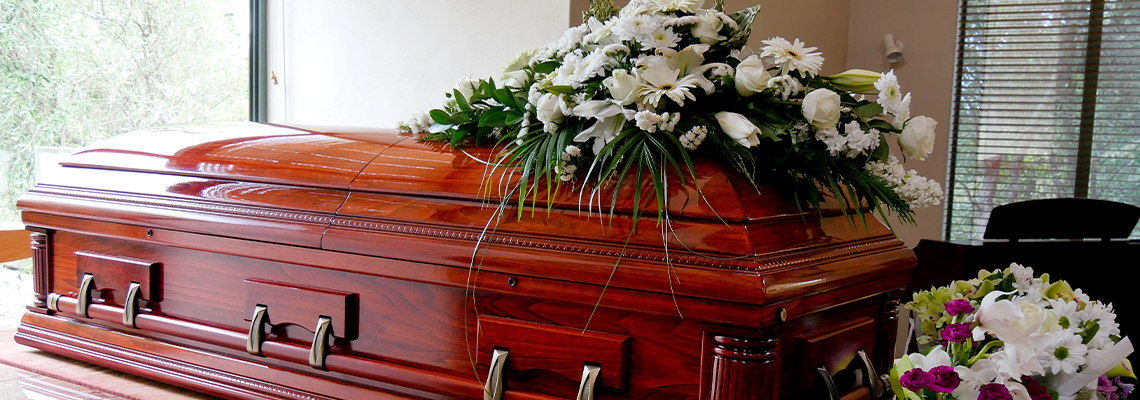
FAQs: What Needs to Be Done When Someone Dies
The death of a family member can be extremely emotional for their surviving loved ones. Oftentimes, many individuals find it difficult to deal with the loss and may be unsure about what to do next. Nonetheless, there are some vital tasks that need to be performed while mourning, including getting the death certificate, informing other loved ones, making funeral arrangements, and locating the decedent's estate plan.
Attorney Wilcox can assist with the post-death activities and offer you the confidence you need to bear the loss. The firm proudly serves clients across Bradenton, Sarasota County, and Matanee County, Florida.
FAQs: What Needs to Be Done When Someone Dies?
Attorney Wilcox is poised and ready to guide and support the families of the decedent during such a grieving period. As a seasoned Florida estate planning attorney, he's available to discuss your unique situation and fully explain the different tasks that need to be done when someone dies.
What Is the First Thing I Should Do When a Loved One Dies?
Following the death of a loved one, the first thing to do is obtain the legal pronouncement of death. In the state of Florida, the medical examiner, practitioner, or coroner can pronounce and certify the cause of death.
Do I Need to Get Death Certificates?
Using the legal pronouncement of death, you may be able to obtain a death certificate. The death certificate is required for different legal and financial purposes, including obtaining insurance claims, retirement benefits, Veteran's benefits, social security, and commencing the probate process.
In addition, you will need the death certificate to access bank accounts and pension benefits, for final arrangements, and to settle the decedent's estate and final affairs. Therefore, ensure that you make multiple copies of this important document, and keep them in a safe and secure place.
Who Do I Need to Notify?
Furthermore, you need to inform the decedent's immediate family members, dependents, friends, and close relatives about the deceased. Likewise, notify coworkers, employers, associates, brokers, service providers, professional relationships, financial institutions, social security offices, insurers, and other necessary individuals and entities.
What Funeral Arrangements Should Be Made?
Additionally, some people usually provide specific instructions about their preferred final arrangements (inter vivos instructions) in advance, through the disposition of the final remains document. Locate the document and check out the instructions provided. Above all, honor the wishes of the dead and treat their body accordingly.
In the event that the decedent fails to provide instructions for the final arrangement, you will have to make the necessary burial and funeral arrangements. Some of the available options for final deposition in Florida include cremation, in-ground burial, above-ground burial, organ donation, and whole-body donation. Choose the ideal option to honor the deceased's memory, and organize a befitting final arrangement.
What About Children and Pets?
In addition, take proper care of the deceased person's surviving minor children, close relatives, dependents, or pets. They may find it difficult to cope with the loss. Support and care for them, and make suitable provisions for their welfare. Also, if necessary, you can give them a place to live temporarily.
Some individuals often provide instructions about conservatorship, guardianship, and caretaker for pets in their estate plan. You can locate the person's will or living trust to see if such provisions are available.
How Is the Will or Trust Handled?
Locate the decedent's estate plan, including a will, living trust, and other documents. Identify the fiduciaries, including personal representatives, trustees, or executors named in the will or trust, and inform them about their expected duties. During the estate or trust administration, ensure that the executor or trustee settles the estate in accordance with the decedent's wishes or provisions and instructions provided in the estate plan.
Do I Need an Attorney?
When a loved one dies, there are many post-death activities that need to be sorted out. It is advisable that you work with an experienced estate administration attorney to plan for their funeral, administer their estate, and execute other vital post-death tasks efficiently. By working with an attorney, you can get the detailed guidance and assistance you need during such a difficult period.
Here to Support You and Your Family
Losing a loved one or someone close to you can be a heartbreaking experience. However, you're not alone. Attorney Wilcox is dedicated to offering comprehensive guidance and advocacy to individuals and families in post-death-related matters. Also, he is available to offer you the dedicated support you need to navigate crucial decisions after the loss.
In addition, Attorney Wilcox can educate you about the post-death activities you're required to carry out. Also, he will help obtain the death certificate, plan their final arrangements, settle their estate and final affairs, and perform other important tasks. Attorney Wilcox will prepare a well-detailed checklist that will guide you through every legal, financial, and general issue you need to address when a loved one dies.
Contact the Law Offices of David W. Wilcox today to schedule an initial consultation with a trusted estate planning lawyer. Attorney Wilcox can offer you the detailed advocacy and personalized legal guidance you need to navigate crucial decisions. The firm proudly serves clients across Bradenton, Sarasota County, and Matanee County, Florida.